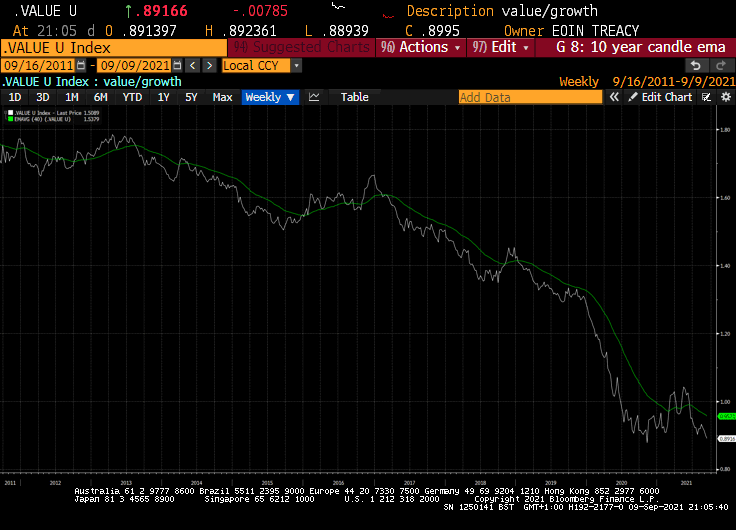Dispelling Myths In The Value vs. Growth Debate
Thanks to a subscriber for this report from GMO which may be of interest. Here is a section:
Argument 3: Today’s business models have rendered most accounting data irrelevant, so isn’t investing on the basis of obsolete measures like P/E or price/book a fool’s errand?
Answer: Here at GMO we’ve got a good deal more sympathy for this argument than the first two. The fact that GAAP accounting hasn’t kept up with business models that are more dependent on intellectual property than tangible assets is unquestionably true. While it is worth remembering that book value was a highly imperfect guide to “true” economic capital even in the pre internet (and pre stock buyback) days, it is certainly more flawed now. We think the right response to the problem is not to give up on value as a style but to build better value models. GMO’s Global Equity team spent 4 years painstakingly rebuilding the balance sheets and income statements of over 10,000 companies going back over 40 years, capitalizing expenditures that we believe should have been considered investments and undoing the distortions created by decades of stock buybacks. This has not only given us improved versions of accounting-based valuation models that we believe are far closer to economic reality than what is embodied in the measures used to build style indexes, but we’ve taken advantage of that economically relevant data to build a forward-looking dividend discount model that we believe can also differentiate between companies where it is worth paying up for their future growth potential from those that are merely overvalued.
It is honourable for a captain to go down with the ship but it’s not a great personal decision. Faced with decades of unrelenting underperformance of traditional value stocks GMO decided to evolve their definition of what a value company is. It turns out value looks a lot like growth after all. Isn’t that convenient?
It was a rational decision to look at earnings growth and investment in new technologies to overcome high valuation arguments applied to growth stocks. That allowed them to buy high performing companies like Amazon and Google.
It also allows them to make the argument that investing in private equity makes objective sense. These types of assets deliver new revolutionary technology and earnings growth even if valuations are pricey. Even if it was the right move, I fail to see how this is not a case of “if you can’t beat them, join them”
We see this kind of activity in every bull market. Missionary zeal is a necessary component of every truly big trend. Creative new ways of convincing conservative investors to buy is essential to help add fuel to the rising trend. That’s how bull markets evolve. Eventually everyone is long for one reason or another.
If we think about what needs to happen for the value/growth ratio to reverse, it can happen in a number of ways. All that needs to happen is the big growth trend to end while leaving the under-owned value portion less affected.
That’s the big growth falls faster argument and is the most credible one in my view. That particular course of events is very interest rate dependent even if the broad long-term correlations between value and rates is less compelling.

We are still in a very liquidity rich environment and financial conditions remain close to extreme levels of accommodation. Bond yields will need to trend higher in a convincing manner to challenge the status quo.


